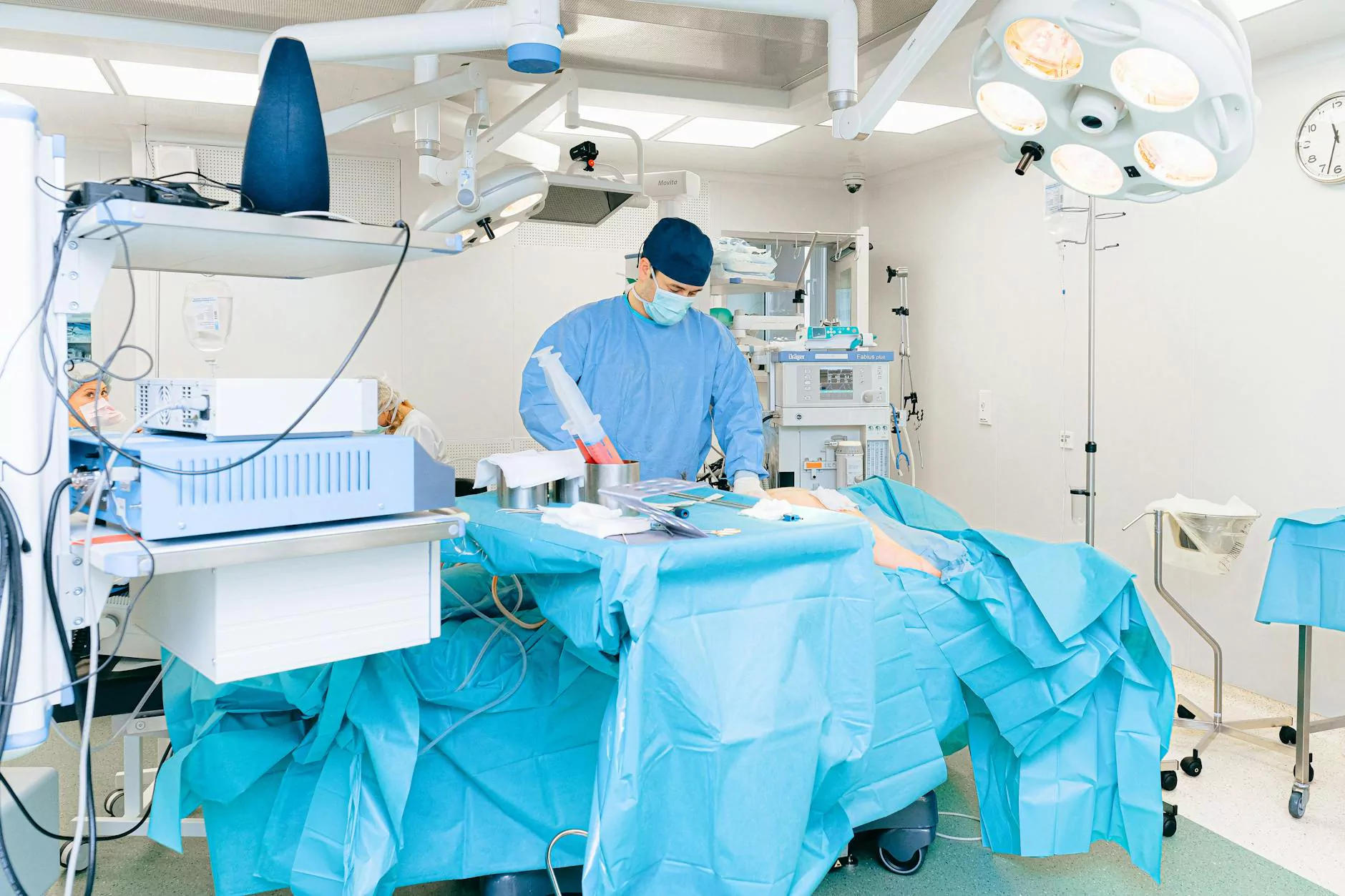MRI Technical Services: Transforming Diagnostic Healthcare

In today's fast-paced healthcare environment, the demand for reliable and efficient diagnostic imaging services has never been higher. Among these, MRI technical services play a crucial role in delivering high-quality images that aid medical professionals in making informed decisions about patient care. This article delves into the expansive world of MRI technical services, exploring how they enhance diagnostic accuracy, improve patient outcomes, and bolster the overall efficiency of healthcare systems.
Understanding MRI Technical Services
MRI (Magnetic Resonance Imaging) is a non-invasive imaging technology that produces detailed images of the organs and tissues within the body. MRI technical services encompass a range of activities, from machine maintenance to the management of imaging protocols, which ensure that MRI machines operate at optimal levels.
Key Components of MRI Technical Services
- Equipment Maintenance - Regular maintenance of MRI machines is essential to ensure they are functioning efficiently and producing accurate images.
- Quality Assurance - This involves systematic testing and evaluation of imaging quality to comply with medical standards.
- Protocol Management - Developing and updating imaging protocols to keep up with advancements in technology and methodology.
- Training and Support - Providing ongoing training for radiologists and technologists to ensure they are well-versed in using MRI equipment and understanding imaging results.
The Importance of MRI Technical Services in Healthcare
In the realm of health and medical services, the importance of MRI technical services cannot be overstated. These services directly contribute to better diagnostic capabilities, which have far-reaching impacts on patient treatment and care. Here are several reasons why MRI technical services are vital:
1. Enhancing Diagnostic Accuracy
High-quality images obtained through MRI play an indispensable role in diagnosing various conditions, such as tumors, brain disorders, and musculoskeletal injuries. MRI technical services ensure that the imaging techniques used are precise and reliable, leading to accurate diagnoses. This accuracy is paramount in developing effective treatment plans, reducing the likelihood of misdiagnosis.
2. Improving Patient Outcomes
With accurate diagnostics comes timely and appropriate treatments. MRI technical services facilitate this by ensuring that images are not only clear but also obtained in a timely manner. Reducing the wait time for imaging can drastically improve prognosis, particularly in cases where early intervention is crucial.
3. Supporting Advanced Research and Development
As healthcare continually evolves, so does the technology associated with it. MRI technical services support research and the development of advanced imaging techniques. By maintaining state-of-the-art MRI systems, medical professionals can engage in research projects that pave the way for innovative therapies and procedures.
An Overview of Diagnostic Services in MRI
When we talk about diagnostic services related to MRI, we also touch upon the wide range of imaging modalities available. Each of these plays a pivotal role in the broader scope of medical diagnostics. Here are some of the pivotal diagnostic services:
- Functional MRI (fMRI) - Allows researchers and clinicians to measure and map brain activity through changes in blood flow.
- Magnetic Resonance Angiography (MRA) - A non-invasive imaging technique used to visualize blood vessels.
- MR Spectroscopy - An advanced method of analyzing chemical metabolites within tissues, aiding in distinguishing between tumor types.
The Role of Technical Expertise in MRI Services
A significant aspect of MRI technical services is the level of expertise involved. Qualified personnel are essential in numerous capacities, including:
1. MRI Technologists
Technologists play a crucial role in acquiring images. Their training and expertise ensure that patients are positioned correctly and comfortable, enhancing the likelihood of obtaining high-quality images.
2. Radiologists
Radiologists interpret MRI images and provide integral diagnostic insights. Their ability to determine abnormalities from imaging can significantly influence treatment decisions.
Challenges Faced in MRI Technical Services
Despite their significance, MRI technical services encounter various challenges. Addressing these challenges is key to maintaining high standards in healthcare:
1. Technological Advancements
The rapid evolution of imaging technology means that MRI services must continuously adapt. Keeping up with the latest advancements necessitates ongoing training and investment in new equipment.
2. Regulatory Compliance
Healthcare providers must adhere to strict guidelines and regulations regarding medical imaging. Ensuring compliance can be resource-intensive, yet it is vital for patient safety and service quality.
3. Patient Comfort and Safety
Ensuring patient comfort during MRI scans, particularly for those with claustrophobia or distress related to medical procedures, is a persistent challenge that requires thoughtful management by MRI professionals.
Future Trends in MRI Technical Services
The future of MRI technical services looks promising with several emerging trends that are set to change the landscape:
- Artificial Intelligence (AI) - AI is increasingly being integrated into MRI diagnostic practices to assist in image interpretation and enhance operational efficiency.
- Portable MRI Systems - Developments in portable MRI technology could revolutionize access to imaging, bringing services to remote or underserved areas.
- Increased Telemedicine Integration - The synergy between telemedicine and MRI technical services can improve patient communication and follow-up care significantly.
Conclusion: The Indispensable Role of MRI Technical Services
In summary, MRI technical services are a vital component of modern healthcare that enhances diagnostic precision, fosters patient safety, and contributes to improved health outcomes. As technology continues to advance, the commitment to high standards in MRI technical services will only grow.
Investing in MRI technical services is more than just maintaining machines; it's about investing in the future of patient care. Medical centers and healthcare providers must recognize and uphold the importance of these services to ensure excellence in diagnostic imaging and cater to the evolving demands of healthcare and patient expectations. At Echo Magnet Services, we pride ourselves on delivering top-notch MRI technical services that healthcare providers can rely on.



